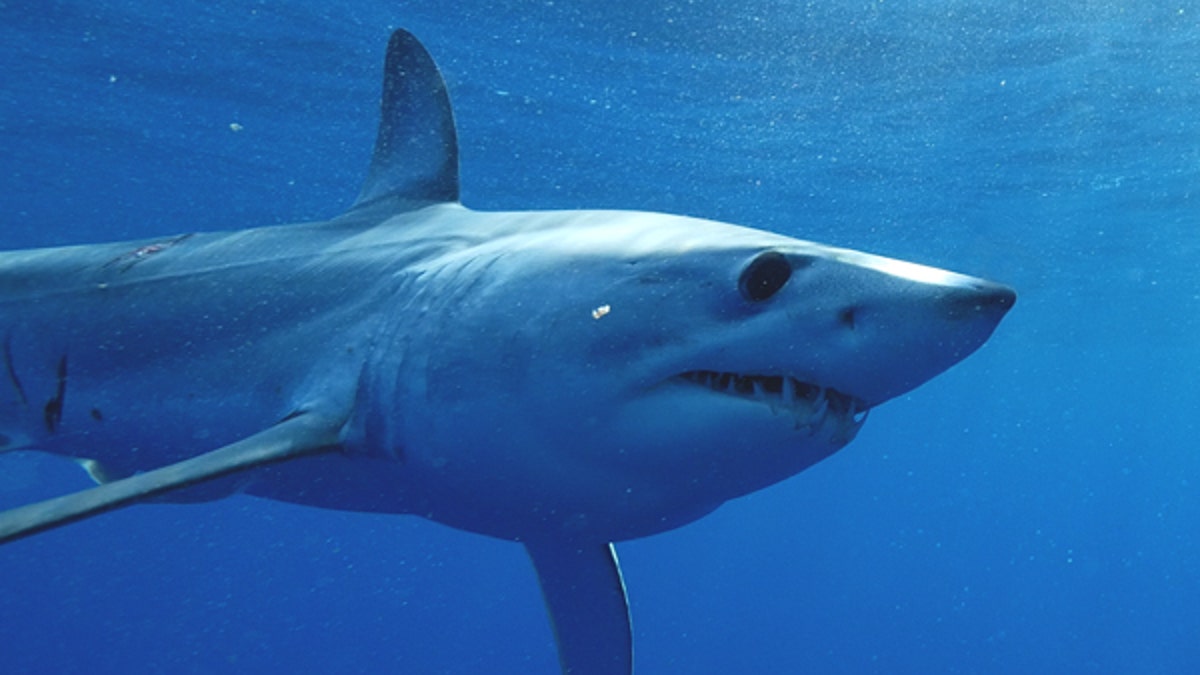
The U.S. Army is funding research on the skin of the mako shark that was presented Monday and could impact how aircraft are built. (Guy Harvey Ocean Foundation)
The skin of the mako shark is being studied by the U.S. Army to help build faster aircraft, according to research presented on Monday.
Makos, the world’s fastest sharks, have rows of millions of tiny raised scales along their sides and fins that researchers at the University of Alabama (UA) believe could be the reason for that lightning speed.
Dr. Amy Lang, a UA aeronautical engineer, is leading the research that she presented at a meeting of the American Physical Society Meeting on Monday, The Independent reported.
The mako’s scales, called denticles, are translucent, flexible and shaped like tiny shark teeth. The denticles are streamlined, so that from nose to tail the shark’s skin feels smooth, but in the reverse it's rough, like sandpaper.
If the water flow changes when a mako shark is swimming, its denticles rise automatically.
“It’s entirely passive, and happens in about 0.2 milliseconds,” Lang told NewScientist.
She and her colleagues found that flow separation — additional pressure and drag in the water — was “reduced significantly” by the denticles and that the most flexible denticles were found in the areas that usually see the most flow separation.
MIT’S CREEPY ‘CHEETAH’ ROBOT CAN NOW DO BACKFLIPS
The additional drag from flow separation is also a problem in the air, but it can be controlled.
“The dimples on a golf ball are an example of separation control that reduces pressure drag by maintaining attached flow around the ball and reducing the size of the wake,” Lang reportedly said on Monday.
“You can hit a golf ball with dimples 30 percent farther than if the same ball were smooth.”
Lang’s research — which is being funded by Boeing and the U.S. Army — could impact how aircraft are built. The findings could lead to more drag-resistant coatings, according to The Independent.
Researchers have already found the mako’s denticles work well in the air and not just in the water. Now Lang and her team are working to replicate the denticles, NewScientist reported.








































